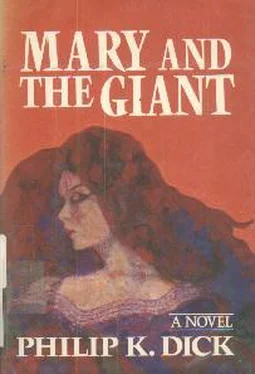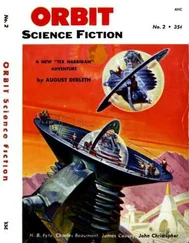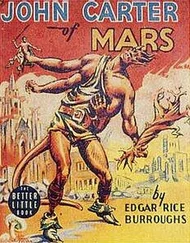Philip Dick - Mary And The Giant
Здесь есть возможность читать онлайн «Philip Dick - Mary And The Giant» весь текст электронной книги совершенно бесплатно (целиком полную версию без сокращений). В некоторых случаях можно слушать аудио, скачать через торрент в формате fb2 и присутствует краткое содержание. Жанр: Фантастика и фэнтези, на английском языке. Описание произведения, (предисловие) а так же отзывы посетителей доступны на портале библиотеки ЛибКат.
- Название:Mary And The Giant
- Автор:
- Жанр:
- Год:неизвестен
- ISBN:нет данных
- Рейтинг книги:4 / 5. Голосов: 1
-
Избранное:Добавить в избранное
- Отзывы:
-
Ваша оценка:
- 80
- 1
- 2
- 3
- 4
- 5
Mary And The Giant: краткое содержание, описание и аннотация
Предлагаем к чтению аннотацию, описание, краткое содержание или предисловие (зависит от того, что написал сам автор книги «Mary And The Giant»). Если вы не нашли необходимую информацию о книге — напишите в комментариях, мы постараемся отыскать её.
Mary And The Giant — читать онлайн бесплатно полную книгу (весь текст) целиком
Ниже представлен текст книги, разбитый по страницам. Система сохранения места последней прочитанной страницы, позволяет с удобством читать онлайн бесплатно книгу «Mary And The Giant», без необходимости каждый раз заново искать на чём Вы остановились. Поставьте закладку, и сможете в любой момент перейти на страницу, на которой закончили чтение.
Интервал:
Закладка:
Slightly after noon, a figure came hurrying up the sidewalk, a brown-haired girl in a cloth coat, with hooped earrings and heels. It was Tweany's friend Mary Anne Reynolds.
Without hesitating, the girl left the sidewalk and dashed up the flight of wooden stairs to Tweany's apartment. She didn't bother to knock; producing a key, she unlocked the door and pushed it open. Disappearing inside, she slammed the door after her. For a time the street was silent. Then, one after another, the windows of Tweany's apartment flew open. The sounds of activity filtered out. At last came the roar of a vacuum cleaner: the girl was cleaning the apartment.
Lounging in the warmth of his Ford, Coombs continued to wait. Time passed, so much and so uniform that he lost all sense of it and drifted into a doze. Somewhere along the line his car battery gave out and the radio faded away. Coombs was unaffected. He remained inert until two o'clock in the afternoon, when, without warning of any kind, Carleton Tweany hove into sight at the far end of the block, his arm around a woman. The woman was Beth Coombs. The two of them, chattering, ascended the stairs and, like a pair of mud wasps, squeezed into the apartment. The door closed after them.
Pulling himself together, Coombs stepped from the car. One leg was asleep; he had to stamp it on the pavement to restore circulation. Then, one hand in his coat pocket, he started at a jog toward the three-story house.
12
That morning, not having to be at the telephone company until three o'clock, Mary Anne showed up at the business office of the Pacific Park Leader.
Evading the information counter, she went directly into the inner offices. "Hello, Mr. Gordon. Can I come inside and sit down?"
Arnold Gordon was pleased to see what he imagined and hoped was his son's fiancee. "Certainly, Mary," he said, getting up and showing her to a chair. "How are you today?"
"Great. How's the newspaper business?"
"Expanding all the time. Well, what can I do for you?"
"You can give me a job. I'm sick and tired of the telephone company."
Her request was no surprise to him. Gravely, Arnold Gordon said: "Mary, you know how much I'd like to."
"Sure," Mary Anne said, recognizing that it was indeed a lost cause.
"But," Arnold Gordon said, and it was true, "this is a small-town newspaper operating on a small budget. We have sixteen employees, not counting carriers. Most of those are typesetters and union men working in the shop. You don't mean that kind of job, do you?"
"Okay, I'm convinced." She got to her feet. "I'll see you again, Mr. Gordon."
"Going?" Eyes twinkling, he observed: "When you're finished with something, you're really finished."
"I have a lot to get done."
"How've you and David been getting along?"
She shrugged. "The same as usual. We went dancing last Thursday."
"Any date set, yet?"
"No, and there isn't going to be unless he wises up."
"What do you mean?"
"That gas station. He could be taking some kind of correspondence course. If I was a man I would; I wouldn't sit around doing nothing, just drifting, waiting. He could take business management. He could learn TV repairing, like you see in the ads."
"Or grow giant mushrooms in your basement? You're not really a practical person, Mary. You appear very efficient and realistic, but underneath that you're-" He searched for the term. "You're an idealist. If you had been born earlier, you'd have been a New Dealer."
Mary Anne started out the door. "Can I drop over for dinner some Sunday? I get sick of my roommate."
"Any time you want," Arnold Gordon said. "Mary-"
"What?"
"I think in spite of our differences you and I are going to get along well."
Mary Anne disappeared, and he was alone. Chuckling selfconsciously, Arnold Gordon seated himself and lit his pipe. She was quite a girl. Were they all that way, now? A generation of oddly mature young people, more adult in some ways than he approved of. Blunt, without piety, unable to find anyone or anything they could respect ... looking for something real enough to believe in: looking for something worth their respect. And, he realized, they could not be fooled. They could see through sham.
Uncomfortably, he realized how his way of life looked to her. False and empty platitudes, ceremonies without content. A world of hollow manners. She made him feel slow and foolish. She made him feel that he had somehow fallen short, had not, in some mysterious fashion, lived up to a standard. She made him feel ashamed.
"What's yours, lady?" the tow-headed boy behind the Bobo's window inquired, when she approached.
She ordered a hamburger and milkshake. "Thanks," she said, accepting her order. He watched her move carefully away from the window, holding onto her purse and hamburger and container of milkshake.
"You go to Pacific High?" he asked. "I did once."
"That's what I mean. I think I used to see you."
Stopping a few feet from the window where the big, brightly painted sign cast a square of shade, she began eating.
"It's hot," the boy said.
"No kidding." She moved a little farther off. "When did you graduate?"
"Years ago."
"What's your name?"
With great reluctance, she said: "Mary Anne Reynolds."
"I think we were in a class together." He turned up a radio by his elbow. "Dig this." Progressive jazz drifted out and mixed with the sounds of traffic. "Recognize it?"
"Naturally. Earl Bostic's 'Sleep.' "You're good."
Mary Anne sighed.
"What's the matter?" the boy asked.
"I've got ulcers."
"You drink cabbage juice?"
"Why should I drink cabbage juice?"
"That's what cures ulcers. My uncle has had ulcers all his life; he drinks it by the gallon. You have to go up to the health food store in San Francisco to get it."
"Sleep" ended and a new tune took its place, a Dixieland number. Mary Anne finished her milkshake and dropped the container into the wire basket.
"What are you doing?" the boy asked, resting his arms on the counter of the window. "Going to work?"
"Not until three."
"Where?"
"Phone company." She wished he would stop pestering her; she hated to be pestered.
"That's a long way; that's across town. How are you going to get there?"
"Walk!"
The boy hesitated, and a strange expression fell over his face. Clearing his throat, he said squeakily; "You want a ride over?"
Mary Anne sneered. "Take off."
"I'll be done with my shift in a couple of minutes. I've got a cool '39 Chevy; it's my brother's, but I get to use it. What do you say?"
"Go fly a kite." He reminded her of Dave Gordon; they were all alike. Wiping her hands with a paper napkin, she examined her appearance in the plate-glass window of the drive-in.
"You going?" the boy asked.
"You're a wizard."
"Sure you don't want a ride? I'll take you somewhere; anywhere you want. You want to drive up to San Francisco? We could go to a show and then maybe to dinner."
"No, thanks."
An elderly white-haired gentleman approached the window, leading a little girl by the hand. "Two ice cream sandwiches," the elderly gentleman said.
"Strawberry!" the child shrilled.
"There's no strawberry," said the counter boy. "Just vanilla."
"Vanilla is quite satisfactory." The elderly gentleman brought out his purse. "How much will that be?"
The child, noticing Mary Anne, started a few hopeful steps after her. "Hello," she piped.
"Hello," Mary Anne said. She didn't mind talking to children; they, like Negroes, seemed to mean no harm. She could feel close to them. "What's your name?"
"Joan."
"Tell the young lady your whole name," the elderly gentleman instructed.
"Joan Louise Mosher."
"That's a nice name," Mary Anne said. She bent down, being careful of her nylons, and held out her hand. "What's that you have?"
Читать дальшеИнтервал:
Закладка:
Похожие книги на «Mary And The Giant»
Представляем Вашему вниманию похожие книги на «Mary And The Giant» списком для выбора. Мы отобрали схожую по названию и смыслу литературу в надежде предоставить читателям больше вариантов отыскать новые, интересные, ещё непрочитанные произведения.
Обсуждение, отзывы о книге «Mary And The Giant» и просто собственные мнения читателей. Оставьте ваши комментарии, напишите, что Вы думаете о произведении, его смысле или главных героях. Укажите что конкретно понравилось, а что нет, и почему Вы так считаете.










